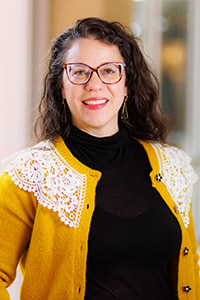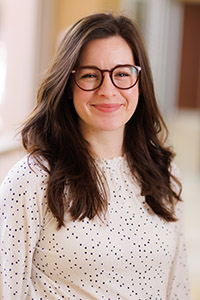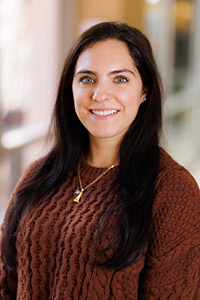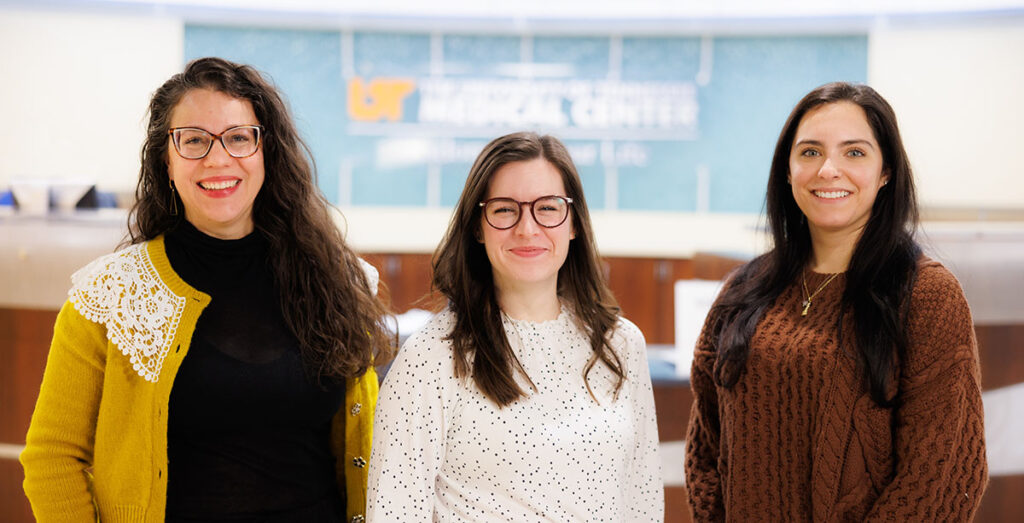At the University of Tennessee, Knoxville, faculty members in nursing, microbiology and nuclear engineering are leading research projects to address complex health challenges including breast cancer, diabetes and other conditions that disproportionately affect communities across Tennessee.
Assistant Professor Patricia Roberson, a family scientist in the College of Nursing; Ivis Chaple Gore, an assistant professor of nuclear engineering in the Tickle College of Engineering; and Lindsey Burcham, an assistant professor of microbiology in the College of Arts and Sciences, all have joint appointments with the UT Health Science Center College of Medicine. Their appointments allow them to put their research into practice at UT Medical Center — just one of the ways UT researchers are working collaboratively to make life and lives better for Tennesseans.
“These interdisciplinary research projects are exciting because working with the College of Medicine and UT Medical Center allows us to ask questions in the context of a human,” said Burcham, who leads a lab in UT’s Department of Microbiology. “By getting clinical samples, we can advance our understanding of not only what microbes do in a test tube but what they do in their natural environment.”
Clinical collaborations can add a lot of value to basic and translational research, the faculty members agree, highlighting the need to create and strengthen relationships between both campuses.
“Partnerships with clinicians are critical to finding solutions to complex health problems,” said Roberson, who runs the Healthy Families Research lab at UT. “The clinical expertise of clinicians in combination with the research and content expertise of UT faculty can produce novel approaches that can ultimately move the needle on the health disparities devastating our region.”
Researching how family support impacts patients

Patricia Roberson
Roberson has been working alongside the College of Medicine and UT Medical Center since 2020 to help those living with breast cancer and diabetes in rural Appalachia. Her research explores how factors such as family support and stress are linked to both good and bad patient health outcomes. She points to Appalachia’s collectivism — an emphasis on the unity of the group or community rather than each person’s individuality.
“Appalachia is one of the very few collectivist cultures in the United States, where people rely on friends and family for everything, including health care,” Roberson explained. “We are trying to figure out what interventions we can implement to bolster or harness the patient’s family support that’s already there and mitigate any of the psychological distress caused by factors like poverty, distance from the hospital and access to health care.”
Roberson and her students are developing a program that works to understand the whole person in health care settings, and she’s planning new projects on lung cancer and women’s health.
Studying microbes in pregnant patients

Lindsey Burcham
Burcham has been working with the College of Medicine and UT Medical Center on women’s health since 2022, specifically studying microbes such as Group B strep and others in the vaginal tract. By collecting samples from pregnant patients who consent to the study ahead of time, Burcham and her students can better understand the vaginal microbiome at the time of delivery, which has implications for the health of both mother and baby.
For example, if researchers can learn which microbes in the vaginal tract are associated with preterm birth or adverse birth outcomes, they can seek to understand how those microbes colonize and what promotes their persistence, Burcham explained. That could provide insight into how to detect or block those microbes, allowing doctors to intervene.
“This has been a unique experience because we’ve worked closely with UT’s Maternal Fetal Medicine fellows and have been involved in training them in the laboratory,” Burcham said. “It has been great to build this relationship, integrating their experiences at the bedside with our expertise at the bench. We learn what is happening in the clinics and consider what questions we can try to answer together.”
Targeting tumors through nuclear medicine

Ivis Chaple Gore
Chaple Gore, a radiochemist in UT’s Department of Nuclear Engineering, focuses her group’s research on the development of radiopharmaceuticals and uses PET/CT imaging equipment at UT Medical Center to determine whether those drugs are targeting tumors as intended.
Radiopharmaceuticals are radioactive drugs used for diagnosing and treating certain diseases such as cancer. PET imaging allows Chaple Gore to visualize tumors and see if the probes are working.
“We employ chemistry techniques, biology, biochemistry and physics, with the goal of developing new drugs that will improve patient prognosis,” Chaple Gore said.
These radiopharmaceuticals don’t just focus on cancer, she added, but can also be used to image infection, inflammation and other diseases.
Showing students the human side of health care
By taking UT students to UT Medical Center and putting a human face on these health issues, researchers are training the next generation of medical and research professionals.
“There is a mom who was diagnosed with breast cancer who lived way up in a holler,” Roberson remembered. “The treatment for her breast cancer was brutal, with radiation and chemotherapy after surgery, and yet the whole family would pile into their one car and drive Mama down the mountain to make sure she got to her appointment on time and that she got home safe.
“These stories show how rich our culture is here in Appalachia and how much we really do care for each other,” Roberson said. “It’s important for us to meet people with compassion, to lift them up, and to help them understand their diagnosis and what the patient and their family can do to achieve the best possible health outcomes.”
